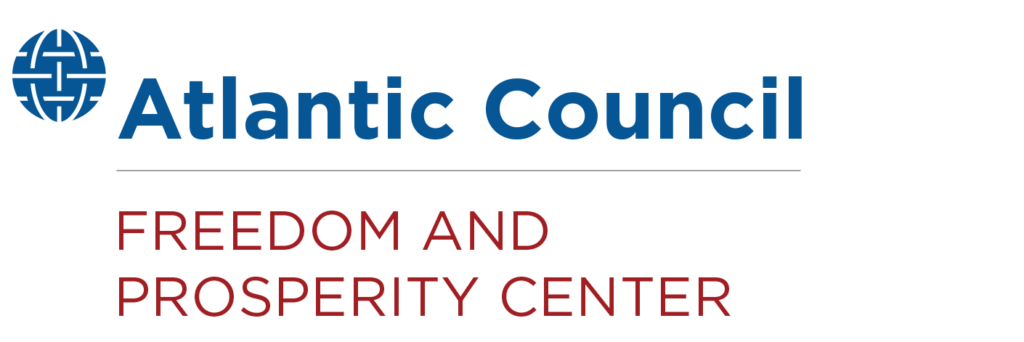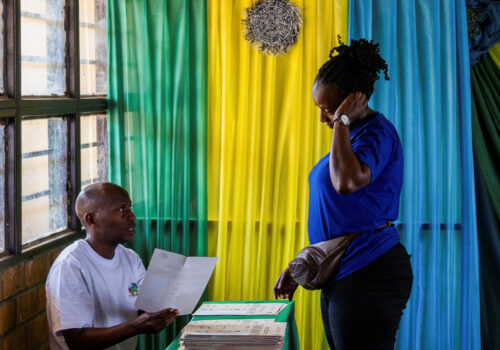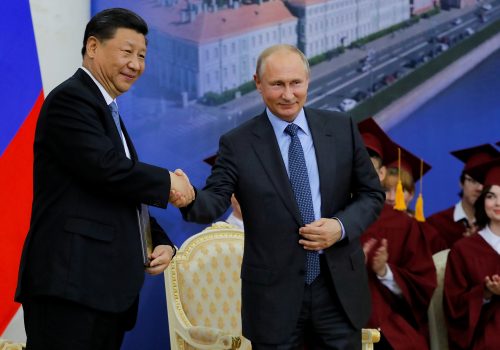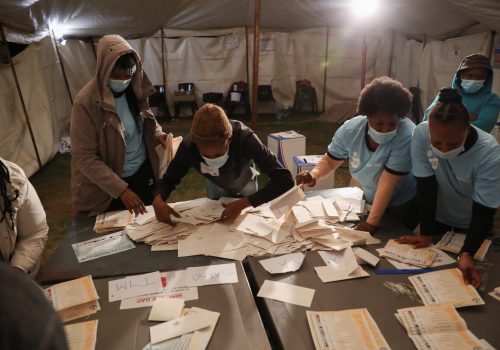Even in authoritarian countries, democracy advocates are worth investing in
Freedom and democracy are in decline globally, according to the Atlantic Council’s Freedom Index. Political freedom in particular has slumped sharply since 2019, bringing the world to a twenty-four-year low. The biggest backsliders—the places with the sharpest declines in political freedom—span every major geographic region and many are particularly relevant to US national security.
There are several fundamental reasons for the United States to support strategies that aim to halt such backsliding and foster democratization, including ones that go beyond the moral obligation to support humanitarian values. For instance, research shows that democracies are less prone to enable and export transnational crime or terrorism, and democracies are better at adapting to adverse economic events and avoiding large-scale disasters, and are more reliable trading partners, offering better business opportunities by upholding the rule of law and protecting investments from the arbitrary predation of political elites. Most notably, the vast majority of people around the world continue to prefer to be governed democratically.
Democracy support also strengthens the US position more broadly in the strategic contest against the autocratic rivals of China, Russia, Iran, and North Korea. Robust democratic institutions—transparent judiciaries, capable legislatures, responsive political parties, an active civil society, and a free press—make it harder for the rulers in the autocratic bloc to co-opt elites in other countries and advance their malign agendas.
But with the world experiencing a global democratic recession, questions arise as to whether supporting democracy is a losing battle. Despite the bleak recent data on global democratic progress, democracy assistance is still crucial, not only in countries undergoing political openings and democratic consolidation but also—and perhaps even more so—in countries that are backsliding.
Case studies in the Middle East, Latin America, Eastern Europe, and sub-Saharan Africa suggest that using foreign assistance (in addition to and in concert with diplomacy and investment) to support democracy champions wherever they are is an effective strategy, even if the payoff is not immediately apparent at the level of a country’s political system.
Related content

The Freedom and Prosperity Center aims to increase the prosperity of the poor and marginalized in developing countries and to explore the nature of the relationship between freedom and prosperity in both developing and developed nations.
Image: Nicaraguans exiled in Costa Rica protest outside the Nicaraguan embassy ahead of President Daniel Ortega's swearing-in ceremony after he was re-elected for a fourth consecutive term, in San Jose, Costa Rica, January 10, 2022. REUTERS/Mayela Lopez


